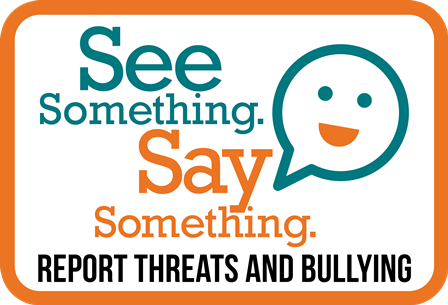End-of-Course Examination Program (EOCEP) for All High Schools
The South Carolina Board of Education requires participation in the End-of-Course Examination Program (EOCEP) for students enrolled in gateway courses which are awarded credit in English 2, Algebra 1, Biology 1, and the United States History and the Constitution (USHC). The EOCEP examination scores count 20 percent in the calculation of the student’s final grade.
EOCEP testing will be conducted at brick-and-mortar schools during specified test days in November and December for Greenville County students who are enrolled in one of the participating courses. Refer to your student’s school website for a listing of exam dates and times. Students enrolled in the GCS Virtual Program will test on the following dates: English 2 - Writing - November 30, and Reading - December 5; Biology 1 - December 6; USHC - December 7; Algebra 1 - December 12. Each school will share additional scheduling details. Per the SC Department of Education (SCDE), remote testing is not available.
The EOCEP tests are untimed; however, 2-3 hours is the estimated test administration time for most students to complete the test. Students are expected to complete the test during a single day unless the student has an IEP or 504 Accommodations Plan specifying administration of a single test over multiple days.
Tests will be administered via the online testing format unless the student has an IEP, 504 Accommodations Plan, or Individualized Language Acquisition Plan specifying the paper format is needed. Students will need to bring their charged district-issued device (e.g., Chromebook) to school each day. Students are prohibited from using the testing device to create, store, or transmit by any means any documents or images related to the test. Additionally, the SCDE requires all other devices (such as cell phones or smart watches) to be collected prior to the test administration as students may not possess any electronics or other devices that can be used for communication, timing, creating images, or storing images in the test setting. Per the SCDE, if a student has a prohibited electronic device accessible and is suspected of using the device for cheating/sharing of content or if there is evidence of cheating/sharing content, possible penalties may include the following: disciplinary action at the school and/or not receiving a test score/test invalidation. Additionally, the SCDE could pursue criminal investigation and possible criminal charges or civil or legal sanctions.
EOCEP tests consist of mostly selected-response items but may include some technology-enhanced and scenario based items. The English 2 test contains separate reading and writing sections which are administered on separate testing days. The English 2 writing test includes a Text-Dependent Analysis item and selected-response writing items.
To prepare students for online testing, a public version of the Online Tools Training (OTT) is available for students to interact with the testing software and tools before the “real” administration of the assessment. While the OTT simulates the test experience, correct answers and scores are not provided. A public version of the OTT is available (use Google Chrome to access this site). This public version includes audio for oral administration and video for sign language.
To learn more about the EOCEP tests, access the SCDE's Student and Parent Resources page. The EOCEP Parent and Student Assessment Brochures are available on this site in multiple languages and formats.
Testing Tips
Students and parents can work together to make sure they are well prepared by following these suggestions.
Students should:
- Rest on the nights before these tests.
- Eat a nourishing breakfast on the morning of each test.
- Be in school and on time, except in cases of illness.
- Listen attentively to the teacher’s directions so he/she will know exactly what to do.
- Read each test question and each response carefully before marking an answer choice.
- Stay calm if there are questions that seem difficult.
- Mark his/her best answer.
- Refrain from bringing any electronic device that can be used for communicating, timing, or imaging into the testing location. Follow the teacher’s directions regarding shutting down and turning in any electronic devices.
Parents should:
- Meet with your child’s teachers as often as necessary to discuss his/her progress.
- Check or review your child’s homework, projects, or other school work.
- Ask teachers to suggest activities for you and your child to do at home to help prepare for tests and to improve your child’s understanding of schoolwork.
- Talk with your child about school.
Provide positive feedback by praising your child for what he/she does well.
Help us help your child perform to the best of his or her ability. For more information about testing or your child’s progress, please call your child’s school.



